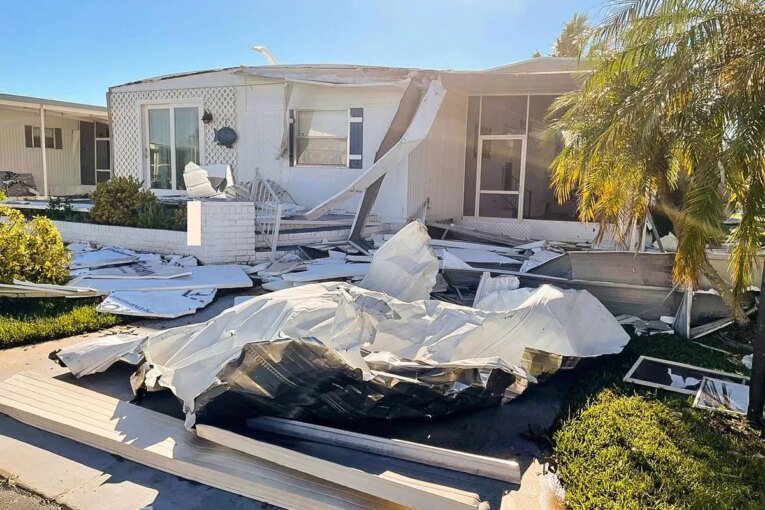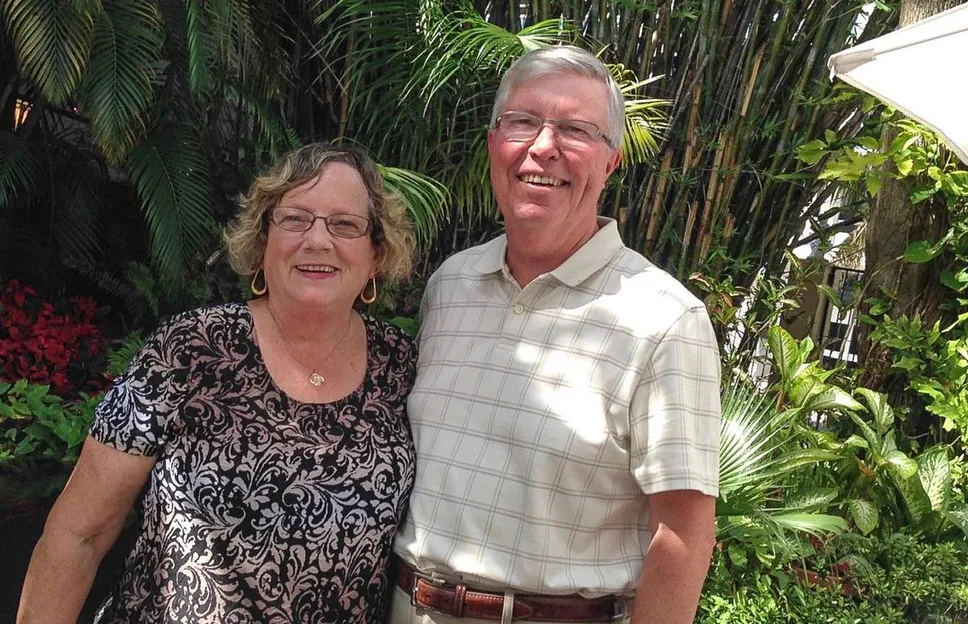
Canada’s snowbirds are once again preparing to make the trek south for the winter, the first “normal” migration since the start of the pandemic — and some are finding their winter nests in disarray.
When Hurricane Ian ripped through Florida last month, it left a trail of destruction — an estimated $40-70 billion (U.S.) in damage there and in the Carolinas. While the storm raged, Garry McDonald and his wife Mary Ellen waited at home near Sarnia, Ont., for news from their neighbourhood in North Fort Myers, where they’ve been wintering since 2013.
At first, information was easy enough to come by — the neighbourhood had set up a social media page, and the permanent residents discussed what they’d been seeing ahead of the storm. But those updates dwindled as the storm hit, leaving the McDonalds wondering fretfully as they monitored reports of the hurricane’s ferocity.
It wasn’t until 48 hours after the storm passed that McDonald got a report of the damage to the house — the outer roof had been torn off, they had lost the sun room and some of their carport had blown away.
“I would say we had moderate to medium disaster impact,” he said. “(But) there are some people in our community — at least 10 per cent of our homes are total writeoffs and I feel so sorry for those folks. Some of them are permanent residents.”
(Neighbours who were there told McDonald that the storm — Florida’s deadliest hurricane in more than 80 years — didn’t just pass through the area; it just seemed to “sit there and do destructive things.”)
Because Canada’s health-care regulations limit the time they are allowed to spend outside the country, the McDonalds couldn’t immediately go down to see the damage themselves. “When we arrived here about two and a half weeks later, we knew what we were expecting — but it was still a shock,” said Garry.
Though some damage had been cleaned up by neighbours, they saw the sunroom at the front of their house flattened, they saw the sheets of aluminum that used to roof their house torn and twisted on the ground around it. Their carport was mostly gone.
But the house itself, they decided was livable.
“We knew we had power. We knew we had water. We decided to stay in the house — a tarp had been put over it by that point. And we’re fine.
“Everything inside was manageable and safe for us — which our kids were concerned about. And then the rest of the stuff can be added on as contractors become available because they’re scarce”
For Gary Wilson, who lives in London, Ont., the decision on whether his Florida home is livable has yet to be made. This was to be the Wilsons’ last winter in Fort Myers; they had planned to try to sell their mobile home there this year.
Now those plans are on hold while they assess Ian’s damage.
“This has been our home for 13 years — we go down for six months every year,” said Wilson.
“We were planning on going down this year and selling our place, but the home now is pretty much questionable as to whether or not it could be sold. It’s also questionable as to whether or not it could be lived in.
“So, we’re going to have a closer look and get some idea of just how extensive the damage is and whether or not it’s repairable. And (then) trying to look at what our options are.”
Not only are Florida snowbirds dealing with cleaning up the damage from a Category 4 (out of five) hurricane, but they’re also having to deal the rising post-pandemic cost of wintering south of the border; some may find their yearly migration more difficult in the future.
Early arrivals are reporting that prices have increased significantly in U.S. grocery stores, though gasoline remains cheaper than in Canada. Add in a poor exchange rate (with the loonie currently fetching around 75 U.S. cents), and a likely increase in insurance premiums after Ian, and the result is a marked increase in financial pressure for snowbirds.
“That’s a big concern this winter,” said Bob Slack, president of the Canadian Snowbird Association, who winters in Winter Haven, southwest of Orlando. “We’ll just have to cut back on activities and going out to dinner and doing all the frills. Stay at home and cook. Get the barbecue going.
“I think all snowbirds have kind of a restriction on the amount they want to spend.”
For families such as the Wilsons, who had planned to end their string of winters in the sunshine, Hurricane Ian has meant the difference between walking away from their snowbird days with a little bit of money from the home sale, or just walking away.
“Regardless of what happens, this will be the end of our vacationing in Florida,” said Wilson. “We have no idea what we’re facing financially. None. We are seniors on fixed income, and finances are certainly limited.
“There are just a lot of unknowns until we get there and get talking to the insurance companies and adjusters and whatnot.”
You can read more of the news on source




